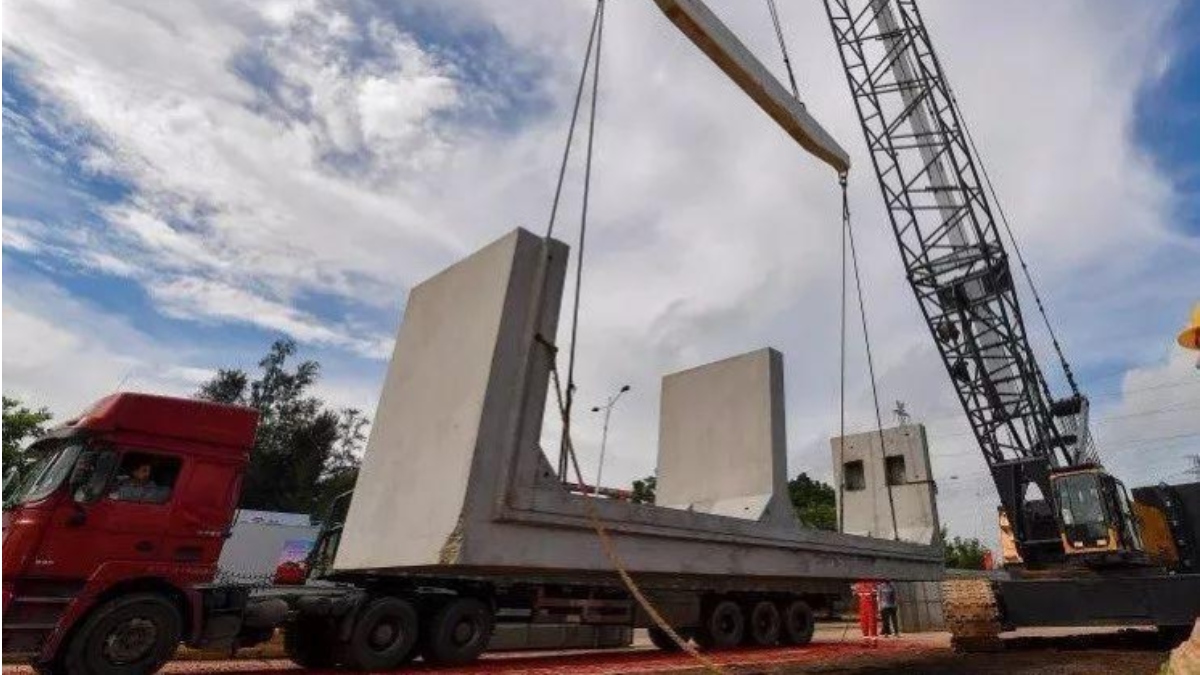China is in the early stages of easing its policies on infrastructure investment – and tight credit controls on mortgage and developer loans are also likely to be gradually relaxed soon, say Bank of America Securities.
A sharp growth slowdown in recent months is prompting policymakers to ease credit controls on infrastructure plans because it is less politically sensitive and more easily reversible than on property, said a report on Friday lead-written by chief Greater China Economist Helen Qiao.
“For the overall economy to stabilise, more policy easing will be needed, especially in the property space,’’ said Qiao. “We do expect the tight credit control on property mortgage and developer loans to be gradually relaxed soon.’’
Also on AF: China Rust-Belt Province Warns of More Power Shortages
The policy easing comes as China grapples with Evergrande’s liquidity crisis and widespread power shortages that have prompted some economists to downgrade growth forecasts. Qiao downgraded her China growth forecast last month to 8% this year, from 8.3% previously, and to 5.2% in 2022 from 6.2%.
Qiao noted the government’s pledge to step up fiscal expenditure on infrastructure investment and to speed up the issuance of local government bonds during a Politburo meeting on July 30.
The National Development and Reform Commission (NDRC) later announced that local governments should submit more infrastructure investment projects for approvals, along with priorities on 102 “major programmes” under the 14th Five Year Plan (2021-25) that will give them a green light for funding from financial institutions, the report said.
A contraction in infrastructure fixed-asset investment narrowed in August, after a significant growth slowdown from April to July, Qiao noted, adding that she believed infrastructure investment growth may have bottomed out.
She cited the following signals from policymakers:
- Project approvals by the National Development and Reform Commission accelerated in August, and it also vowed to expedite pre-construction approvals and preparation of infrastructure projects at a September 8 briefing. It also pledged to turn the “major programmes” listed in the nation’s 14th Five-Year Plan into concrete projects faster, and ensure funding for those projects.
- China will “appropriately frontload” some infrastructure investment, Vice-Premier Liu He said on September 6, while the State Council approved a national “new infrastructure” roadmap for the 14th Five-Year Plan FYP period on September 22.
“These signs of policy support point to a fuller project pipeline and faster construction,’’ Qiao said.
Even though these measures will help relax the credit control on infrastructure projects and stabilise the funding flow, Qiao said she does not believe infrastructure investment will rebound substantially in the near term.
- By Kevin Hamlin
Read more:
Harbin Among First Chinese Cities Now Helping Developers
No Let up in China’s Aim to Curb Tech Monopolies: PBoC Chief
























